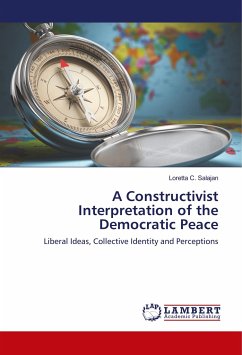
Broschiertes Buch
15. September 2013
LAP Lambert Academic Publishing

2,99 €
Sofort per Download lieferbar
Ähnliche Artikel

Broschiertes Buch
Liberal Ideas, Collective Identity and Perceptions
3. Dezember 2018
LAP Lambert Academic Publishing

15,99 €
Versandfertig in 6-10 Tagen
Broschiertes Buch
The Successful Securitization of the Triple Threat of Terrorism, ¿Outlaw¿ Regimes, and Weapons of Mass Destruction
10. Juni 2016
LAP Lambert Academic Publishing

Broschiertes Buch
Constructivist Critiquing of the Realist Paradigm in International Relations
Aufl.
8. August 2012
LAP Lambert Academic Publishing

Broschiertes Buch
20. November 2019
Columbia University Press / ibidem
9783838212777

Broschiertes Buch
Under the Grip of Orientalism and American Exceptionalism
2019
LAP Lambert Academic Publishing


Gebundenes Buch
Theory of nation formation and nation-building policies of Austria after 1945
2024
Peter Lang
291450

Broschiertes Buch
European Political Entrepreneurs from the 1980s to the Arab Spring
Mai 2024
Peter Lang
434345

Gebundenes Buch
The Tumultuous Fate of a Nation Caught Up Between the Rivalries of the World¿s Major Powers
28. September 2017
Peter Lang
272972

Broschiertes Buch
29. Oktober 2010
Springer / Springer New York / Springer, Berlin
978-1-4419-2588-6
Ähnlichkeitssuche: Fact®Finder von OMIKRON
